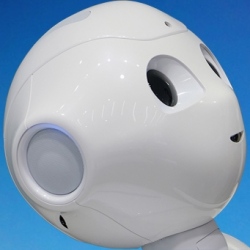
Bill Gates thinks that, as automation makes jobs obsolete, governments should impose a tax on robots. While this plan is not yet an accepted solution, Gates has stated that we need to at the very least start talking about what we will do about job loss in this age of automation. It’s possible that robots will take over some human jobs.
In fact, it seems like it could be only a matter of time before they do. Increasing automation will lead to massive job displacement, and less people working means less employed citizens paying taxes. So, the question is, how will communities make up the difference if automation is inevitable in the future of employment?
Co-founder of Microsoft Bill Gates suggests that robots that take human jobs should pay taxes.
“Right now, the human worker who does, say, $50,000 worth of work in a factory, that income is taxed and you get income tax, Social Security tax, all those things. If a robot comes in to do the same thing, you’d think that we’d tax the robot at a similar level,” Gates explained in an interview with Quartz.
This robot tax money could be taken from what companies would save given the efficiencies that an automated workforce provides them, or a tax imposed on companies that employ robots. The collected taxes could be used for anything from the care of the elderly or to support youth projects in public schools. Gates believes there will be little resistance from companies that employ a robot workforce.
Half of jobs today are already at risk of becoming obsolete due to automation, and evidence of an industrial future defined by an automated workforce is steadily building. According to a report by McKinsey, about 60 percent of all occupations could have 30 percent, or more, of their activities automated with technology that exists today. And, as technology rapidly advances, those numbers will only climb higher.
Gates’ tax idea has already been proposed by European Union lawmakers, but the law was rejected. Another proposal that looks to also provide a solution is the implementation of a universal basic income (UBI), which tech industrialist Elon Musk is a strong proponent of.
Regardless of what solution is put into place or how governments will treat taxes and a waning organic workforce in the age of automation, Gates asserts that this is something that people should start talking about now:
“Exactly how you’d do it, measure it, you know, it’s interesting for people to start talking about now. There will be some great conversations and be some ideas about new investments that can be made.”
